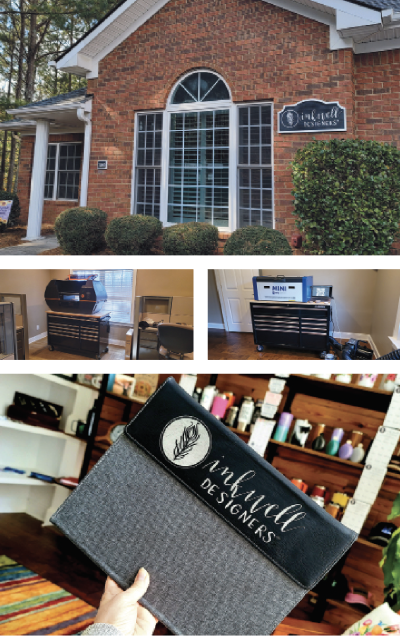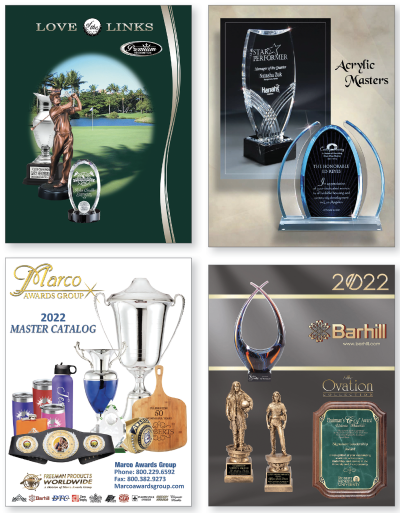It’s any business’ dream—building a client base that is filled with steady, repeat customers who rarely pose a hiccup. But in this industry, that undertaking can come with unique challenges. Each customer may serve a different population, have hyper-specific personalization needs that require highly specialized equipment or have a workplace culture that more readily embraces one product but not another. And without an in-depth knowledge of every company and industry’s specific likes and dislikes, it can be hard to gauge where your offerings will be most successful.
Finding Your Corporate Groove
Businesses should make personal connections and play up specialties to help build a strong roster of corporate clients.
By Kate Rockwood
(Originally published in the July/August 2022 issue of Insights.)
It’s any business’ dream—building a client base that is filled with steady, repeat customers who rarely pose a hiccup. But in this industry, that undertaking can come with unique challenges. Each customer may serve a different population, have hyper-specific personalization needs that require highly specialized equipment or have a workplace culture that more readily embraces one product but not another. And without an in-depth knowledge of every company and industry’s specific likes and dislikes, it can be hard to gauge where your offerings will be most successful.

That’s why it’s smart to cultivate a solid roster of recurring clients and to attract their business year after year by establishing your company as the go-to option within your niche—or, better yet, within multiple niches. This, of course, requires identifying a few business sectors that appeal to you and are a natural fit for your business and then doing all you can to get the word out within these communities.
If you’re not sure where to start, this may all seem easier said than done. But small efforts can add up. And if you’re able to identify the sectors in which you can have the biggest impact, learn smart ways to build out your client base, foster a strategic array of mutually beneficial partnerships, and boost your bottom line—you could be in line for a steady stream of high-paying customers.
What Interests You?
So much of retail is about making your brand and products attractive to potential customers, but now is the time to flip the script and start thinking more deliberately about what appeals to you. For example, if you just happen to be a former varsity athlete, maybe you have a soft spot for middle school, high school and recreational sports—groups that just so happen to need the same end-of-season trophies and awards you once took home.
Do you love to get the tennis rackets out and play a match or two in your off-hours? The tennis club in your area may be just the place for you to start leaving business cards and advertising your services. The same goes for local tennis pros who offer lessons, annual youth summer programs and tennis camps, and private country clubs that boast a few courts and a yearly tournament or two.
Why is it helpful to choose an avenue that already interests you? Because it enables you to speak more fluently on the subject, which is something decision-makers remember when it’s time to make a deal. To put it another way, is the local golf course more likely to sign on the dotted line with someone who can enthusiastically talk about course design and the joys of hitting a flush shot, or someone who doesn’t know a sand wedge from a 7-iron?
Sometimes, however, the area of interest—and eventual expertise—chooses you. Just ask Megan Raymond, owner of Raymond’s Trophy and Awards in Bakersfield, California. “My father-in-law worked in the sheriff’s department,” Raymond says, “so we had a connection with law enforcement and first responders. I told them what we do and asked who they use.”
Once Raymond had determined the kinds of products typically needed in the law enforcement arena—such as retirement plaques or bronze awards—she capitalized on that information by purchasing new machines to suit those needs. For her, the synergy was natural. As she puts it, “Why would they, as a local agency, not want to use a local business?”
Just as crucially, knowing a thing or two about a client’s business—how it works, what it requires and the specific demands it’s fulfilling—can give you greater insight into whether you’re a good match for their needs. Say you’re a tech veteran who’s pivoted to the personalization industry. You might happen to know that a local startup loves to give its employees personalized ping-pong paddles to mark big company milestones, but if you’re not able to manufacture those paddles readily, quickly or cost-effectively, your expertise won’t be enough to land you the contract. Being knowledgeable can be as valuable for avoiding a poor fit as it can be for creating a seamless partnership.
Developing Expertise
Once you have identified a niche or two that feels like a natural fit for your interests as well as your business’ logistical capabilities, it’s time to start digging down a layer and learning the precise parameters of that niche’s needs. After all, what better way to make sure you can meet them?
Say you are married to a corporate insurance broker, learn from them about how such companies typically function. Now is the time to do your homework, which can be as simple as calling up a company and asking how you can be helpful. Does the insurance company two towns over offer an engraved clock to employees on their one-year anniversary or on their fifth? Do they organize annual corporate retreats—which might kick off with a welcome basket filled with such merchandise as company-branded money clips, water bottles or keychains? If they have never considered these practices, can they perhaps be convinced—by you, naturally—to think about their employee incentives in a fresh new way?
So much of this research and information gathering comes down to pounding the pavement and staying plugged into the community. When a new athletic director is hired by the local high school, community college or university, set up a meeting and let them know how you can be helpful. Similarly, has a local school recently changed its logo? Make sure its administrators know that you are able to quickly and efficiently assist them in rolling out the new design on name badges, clothing, backpacks and more.
“It’s not just transactional—it’s relational. You need to know their goals and what keeps them up at night,” says Desiree Colonna, CEO of Inkwell Designers®, about the importance of a personal connection.
That extends to knowing what’s not allowed, Raymond says. In California, for instance, bronze engraving isn’t permitted, “so, when I’m selling a plaque or award to a congressperson, I can’t give them something that’s not allowed,” she says. “It’s my job to know what is and isn’t allowed in my area.”
This principle can apply to many aspects of an industry, and how well you adhere to it can be the difference between a current client and a former one. A clean energy company honoring environmental activists is not likely to want an award crafted from the wood of a threatened tree species, for example. The takeaway? Know the industries you work with, and know them well.
Getting the Word Out
Once you’ve found your niches and your research is done, the next step is to make sure you are getting your brand’s name and services in front of the right people. In many ways, this part of the process goes hand in hand with the previous two: The more you conduct outreach and fact-finding within your target industries, the more your name, reputation and offerings will land on the right desks.


Inkwell Designers' headquarters, including its equipment setup and a sample padfolio
Raymond has continued to cultivate relationships by actively participating in community events. “We’re extremely active in the first responders’ community,” she says. “We were part of the big 9/11 memorial here. We go to sporting events. We just get out there.”
Over the years, she has found that work begets work, and people tell others when they have had a good experience. “The best advertising is word of mouth,” Raymond says. “We’ve always worked with government and law enforcement, and then they told the public sector about us.” However, she continues, there is always room for a little salesmanship. “If I want that big fish,” Raymond says, “I have to go out there and sell myself and our family because it’s a family business.”
Whether digitally or in person, an impactful visual aid is a must for presenting your brand and wares in a way that sticks. Gregory Kolenut, the national sales manager at Marco Awards Group, recommends that businesses make full use of their suppliers’ marketing materials.

Some of Marco Awards Group's corporate items.
“For example, Marco provides retailers with many different versions of catalogs, containing engraved and personalized products that retailers can use with their customers. These catalogs do not have any markings or contact information from the supplier,” he says, allowing businesses to adapt products to any company’s use. Having access to these materials—be it a print catalog, digital catalog or sample object—can represent huge potential cost savings for retailers with slim marketing budgets.
If possible, have a tangible example of your work to show to customers or to leave behind. “Giving away some products is a good idea because a potential customer wants to touch and feel it—they want to see the high quality,” Raymond says.
But as Kolenut mentions, not everyone is interested in an in-person experience. “With feedback from our customers, we’ve learned that there are often two types of corporate clients: those ‘old-school’ clients who like the traditional in-person meetings and presentations and those who just want to go online and get the information themselves.”
That’s why maintaining a digital presence is a central aspect of any worthwhile advertising strategy. Colonna feels that social media is among the simplest, most accessible ways to build that presence. “Instagram has been huge for me,” she says. “I have a lot of my corporate clients on Instagram. I post every project I do, whether it’s 20 tumblers or 200. Instagram is like my portfolio.”
In the end, the most valuable advice for building a corporate customer base may also be the most familiar: Forge genuine connections.
“People trust you when they feel they’re being heard, and that starts with knowing who your client is,” Colonna says. “You aren’t working for a corporation, you’re working for the people in the corporation.”
The Key to Success: Diversify
Although it’s wise to identify a specific corner of the market to serve, it is just as wise to avoid overspecialization. Go too niche, and you tie the fate of your business too closely to just one market. “Thankfully, we’ve never done just schools,” says Megan Raymond, owner of Raymond’s Trophy and Awards in Bakersfield, California. “Because who would have thought that schools would shut down?”
Even if you have created a diverse portfolio of clients, remember not to privilege corporate customers over smaller operations. “Most people think if they’re going after a corporate client, that’s going to be their bread and butter,” Raymond says. “But it’s never a smart decision to put all your eggs in one basket. We’ve seen corporations disappear.” The best course of action? Make sure you target an even mix of large and small companies across several market sectors.
Join Today and Invest in Your Business
When you become a member of the Awards and Personalization Association, you will receive access to the print and online editions of Insights Magazine along with many other valuable benefits. Explore how we can help you get connected with industry experts, increase your skills and knowledge through relevant learning opportunities, and save money with discounts for your business.
LEARN MORE